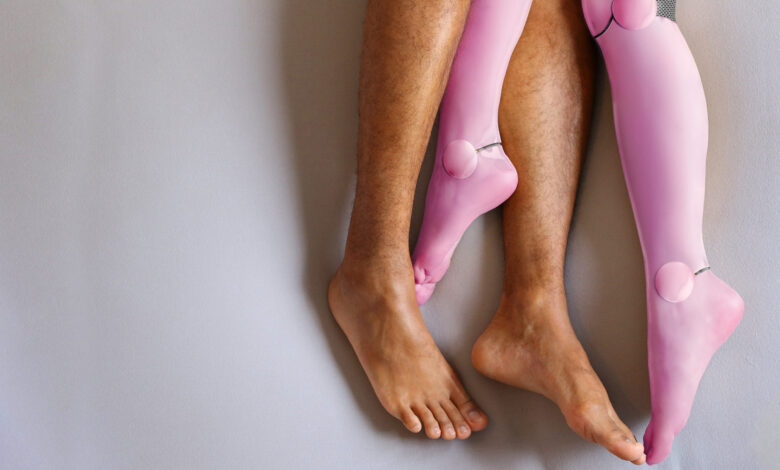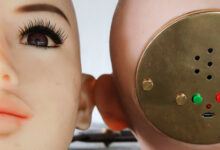Who would use a sex robot? Study identifies personality types more open to ‘artificial love’

MONTREAL — For some they may sound silly, while others find them dreamy. Sex robots are still very much a niche field at the moment. Yet these life-size, life-like machines powered by artificial intelligence are only going to become more and more realistic. Who on Earth would open to using a sex robot? New research out of Concordia University investigates the specific personality traits of people who say they are (and are not) willing to engage with these erotic technologies.
The study finds two traits, erotophilia and sexual sensation-seeking, best predict openness to such erotic technologies. Erotophilia refers to the association sex with positive feelings.
According to lead researcher Simon Dubé, if the sex robot market is going to expand and become more commonplace, it’s essential for involved stakeholders to better understand their target audience. What makes someone interested in artificial love? Conversely, which personality traits are associated with avoiding such technologies?
“It’s extremely important to understand who the first users are and where the initial demand is coming from,” Dubé, a former Concordia Public Scholar who completed his PhD this summer, says in a university release. “The companies that make them need to know in order to adjust and develop these technologies.”
These findings are based on data collected among nearly 500 adults via an online survey that asked about views toward sex robots. To start, respondents’ personalities were assessed using a validated measure of the Big Five, which is a standard model including the overarching traits openness, agreeableness, conscientiousness, neuroticism and extraversion.
“Personality assessments help us predict people’s likely thoughts, emotions and behaviors across all kinds of situations, including those regarding their sexuality — and in this case, their willingness to engage with new erotic technologies such as sex robots,” adds Dubé, who will be pursuing his studies as a postdoctoral fellow at the Kinsey Institute in Indiana this fall.
However, Dubé and his team also recognized that these categories may be too broad. So, they added a model addressing respondents’ attitudes toward sex and technology. This model also featured an important value that measured both positive attitudes toward newness and a desire to have new erotic experiences. This allowed study authors to assess traits related to erotophilia/phobia, or positive/negative attitudes regarding sex, traits linked to technophilia/phobia, or positive/negative attitudes regarding technology, and traits linked to sexual sensation–seeking.
Men more prone to using sex robots
Results indicate the Big Five are only minimally correlated with willingness to engage with a sex robot. Dubé notes this was expected, considering the wide breadth of each category. That being said, when researchers focused on traits more closely linked to the specific subject of sex robots, the story changed. “We found that erotophilia and sexual sensation–seeking, as well as an enthusiasm for new, diverse or more intense erotic experiences, were the primary drivers behind people’s willingness to engage with these new technologies,” Dubé explains. “Technophilia and non-sexual sensation–seeking were also correlated, but only weakly.”
It’s also worth noting that across the board, men appear more interested in sex robots than women. Meanwhile, subjects who identified as gender nonconforming or nonbinary exhibited similar patterns of interest as cis-identifying males. Participants were not asked to reveal their sexual orientation for this study.
Moreover, the current sex robot market caters heavily to heterosexual men. Female erotic robots, called gynoids, are seen much more often in media, advertising, and websites. A high-end gynoid can cost up to $15,000 dollars. Dubé believes females represent an untapped market for sex robots, especially considering women currently constitute the majority of sex toy consumers.
“Right now, women probably do not feel that the product meets their own preferences or needs, or it is just too expensive for something that does not have to be particularly complex or interesting,” he concludes.
The study is published in Computers in Human Behavior.
You can read the full article from the source HERE.
-
Sale!

Aurora: Tender Sex Doll
Original price was: $2,799.00.$2,599.00Current price is: $2,599.00. Buy Now -
Sale!

Dominique: Thick Sex Doll
Original price was: $2,499.00.$2,199.00Current price is: $2,199.00. Buy Now -
Sale!

Auburn: Red Head Sex Doll
Original price was: $2,199.00.$1,899.00Current price is: $1,899.00. Buy Now






